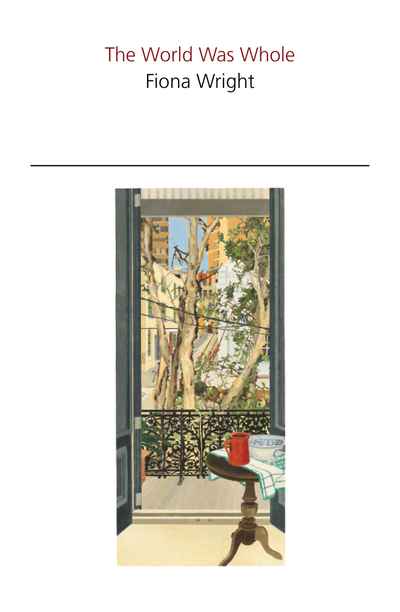The World Was Whole

Paperback | Oct 2018 | Giramondo Publishing | 9781925336979 | 288pp | 234x153mm | GEN | AUD$29.95, NZD$34.99
Shortlisted for the 2020 NSW Premier's Literary Awards Douglas Stewart Prize for Non-fiction
Longlisted for the 2019 Stella Prize
The follow-up to Fiona Wright's essay collection Small Acts of Disappearance – winner of the Nita B. Kibble Award and the Queensland Literary Award for Non-fiction, shortlisted for the Stella Prize and the NSW Premier's Award for Non-fiction.
Our bodies and homes are our shelters, each one intimately a part of the other. But what about those who feel anxious, uncomfortable, unsettled within these havens? In The World Was Whole, Fiona Wright examines how we inhabit and remember the familiar spaces of our homes and suburbs, as we move through them and away from them into the wider world, devoting ourselves to the routines and rituals that make up our lives. These affectingly personal essays consider how all-consuming the engagement with the ordinary can be, and how even small encounters and interactions can illuminate our lives.
Many of the essays are set in the inner and south-western suburbs of a major Australian city in the midst of rapid change. Others travel to the volcanic coastline of Iceland, the mega-city of Shanghai, the rugged Surf Coast of southern Victoria. The essays are poetic and observant, and often funny, animated by curiosity and candour. Beneath them all lies the experience of chronic illness and its treatment, and the consideration of how this can reshape and reorder our assumptions about the world and our place within it.
'In this exquisite follow-on from her award-winning memoir-in-essays Small Acts of Disappearance, Fiona Wright continues to set the standard for the essay form in Australia.' — Jo Case, Books+Publishing
Praise for Small Acts of Disappearance:
'Wright has a gift for compression, lyricism, and a poet's ear for rhythm, all of which animate even the most heartbreaking passages.' — The Australian
'Each essay works as a kind of poetic auto-ethnography, moving between inexplicable realities of the self and those of the world-at-large; between life's surfaces and interiors.' — Sydney Morning Herald
